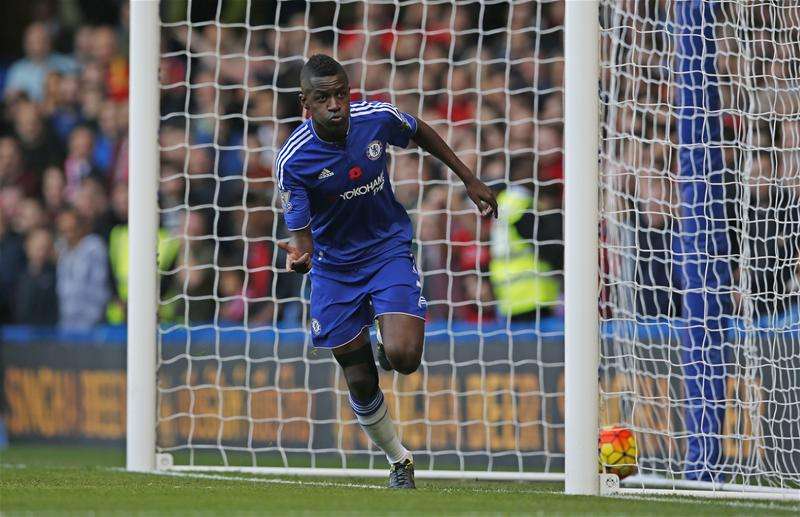 By Liam Coleman
By Liam Coleman
Two-times African footballer of the year, three times Premier League winner, the only African football to score 100-plus goals in the Premier League, captain of his national side and a man worshiped by fans of one of England’s biggest football clubs. Not a bad looking CV but where do you go next?
The obvious answer: Shanghai Shenhua in the Chinese Super League.
Didier Drogba’s illustrious career is a stellar one, and when in 2012 the Ivory Coast international decided to move to a league where the national side had only ever qualified for one World Cup, questions were asked.
Was it a lucrative multi-million deal that would surely see him into retirement, or did he want to do what a certain Mr David Beckham had done in America five years earlier, and transform a country’s perception of a sport highly derided by many?
Eleven appearances and eight goals later, Drogba was plying his trade at another new club, with no Chinese revolution evident.
Fast forward four years and Shanghai Shenhua have joined the list of Chinese Super League teams offering highly sought-after European players lucrative contracts.
With transfer records being broken on a daily basis, their spending in 2016 is second only to the Premier League and the recent transfer of Ezequiel Lavezzi meant they surpassed the £200m spending mark.
Has the revolution begun again? What is the allure of a league which now boasts a cast of world footballing stars?
In the UK, the correlation of politicians and football is somewhat distanced, with Prime Minister David Cameron even forgetting what club he ‘supports’, but China offers their people a far tighter knit relationship.
President of the People’s Republic of China, Xi Jinping, has begun a politically-led football revolution.
Before President Xi even took office, his mission statement and vision stood upon his love for the beautiful game with keys aims being to qualify for the World Cup, to host the event and, finally, one day to win it.
President Xi has not only made football a part of the Chinese national curriculum but has opened football-based schools, and with a population of 1.4 billion you would have thought surely it is only a matter of time before their 97th-placed national team begins an ascent up the FIFA rankings.
But surely the political alignment of football and power is not what a 26-year-old Brazilian superstar is looking for, in a year where he hopes to break into the national side in the hunt for a World Cup winner’s medal.
It might, however, have something to do with the £200,000 a week contract offered to him. The Chinese Super League transfer record was broken three times in ten days in 2016. With Argentinian Lavezzi the latest foreign talent to fly in, signing a reported £23.5m two-year contract, these are figures that have made clubs throughout Europe question whether the Chinese League could be becoming a real contender for the world’s best players.
Not only have players with glittering careers made the move to the Far East, but the league boasts the managerial prowess of World Cup winner Luis Felipe Scolari, former England manager Sven-Goran Eriksson and ex-Chelsea midfielder Dan Petrescu. Eriksson believes that the league’s big buck owners can help attract talent like Cristiano Ronaldo and Lionel Messi in a few years’ time.
The next MLS?
The economic and industrial powerhouses of America and China have a combined population of over 1.6 billion, making up nearly a quarter of the world population, and in 2007 global superstar David Beckham arrived at LA Galaxy to change ‘soccer’ as they knew it.
MLS total attendance of games doubled, and the average attendance increased by over 3,000, but, more significantly, in 2014 the US national side recorded back-to-back progress to the knockout stages of the World Cup for the first time in their history.
So is this simply the same path President Xi is hoping to see in Chinese football?
MLS’s recent success story was initially down to its predecessor, the NASL, where footballing royalty like Pele, Franz Beckenbauer and Carlos Alberto were among the marquee signings to draw attention to a sport overlooked by many Americans. This success, of sorts, in the 1970s-80s led to the US hosting the 1994 World Cup, probably best remembered for Diana Ross’s penalty-taking abilities!
Nonetheless, it was an event which highlighted the rise in popularity of football in America, and surely a vision that Xi shared of one day hosting his own World Cup.
Another comparison to be drawn between MLS and China is that a move to America was considered only by players in the twilight years of their career.
This was often a last-ditch retirement pay-out package with the opportunity to move away to play in a league regarded as free from the pressures of modern football.
Ramires, 28, Alex Teixeira, 26, Ezequiel Lavezzi, 30, Jackson Martinez, 29. This string of China’s latest big money signings are players that still have years ahead of them, so why would you decide to move to a league where standards are considered way below your capabilities.
Once again, the easy answer is money.
Who would turn down a retirement package of £23m in a league where you don’t have to fight for your place in the starting XI week-in and week-out?
Questions of character must be asked of these players. Asamoah Gyan is currently playing at Shanghai SIPG and he is surely the finest example of a footballing money leech.
In 2010, the Premier League flop became Sunderland’s record signing, and after 34 appearance and a lacklustre ten goals he moved on loan to UAE side Al Ain FC where he earned a reported salary four times more than that in the North-East.
After Al Ain, the Ghanaian international moved to China. He isn’t the first, and won’t be the last, who have made solely money-making moves but the question remains: Would you pay money to go to watch them play? Perhaps.
The old cliché that ‘money doesn’t buy you happiness’ isn’t always necessarily true. I am certain that President Xi will be a happy man knowing that his country has managed to attract some of the finest footballing talent in the world, which is all down to these lucrative deals.
But the real question is of the sustainability of this Chinese revolution. Will Xi see his dreams come true or will the millions of pounds invested eventually lead to a demise much like that of the NASL and, likewise, the career of once- marquee signing Nicolas Anelka…?


















